The magic takes place on the kitchen countertop. It can be challenging to find one that fits your needs.
And fits your kitchen design– especially if you’re looking to remodel your kitchen on a budget. We’ve compiled a list of the 10 best kitchen countertop materials.
We are a community of international passionate gourmet kitchen hobbyists. We research, test, burn things, and educate around what matters in the home kitchen.
Best Materials for kitchen countertop
| # | Preview | Material |
|---|---|---|
| 1 | 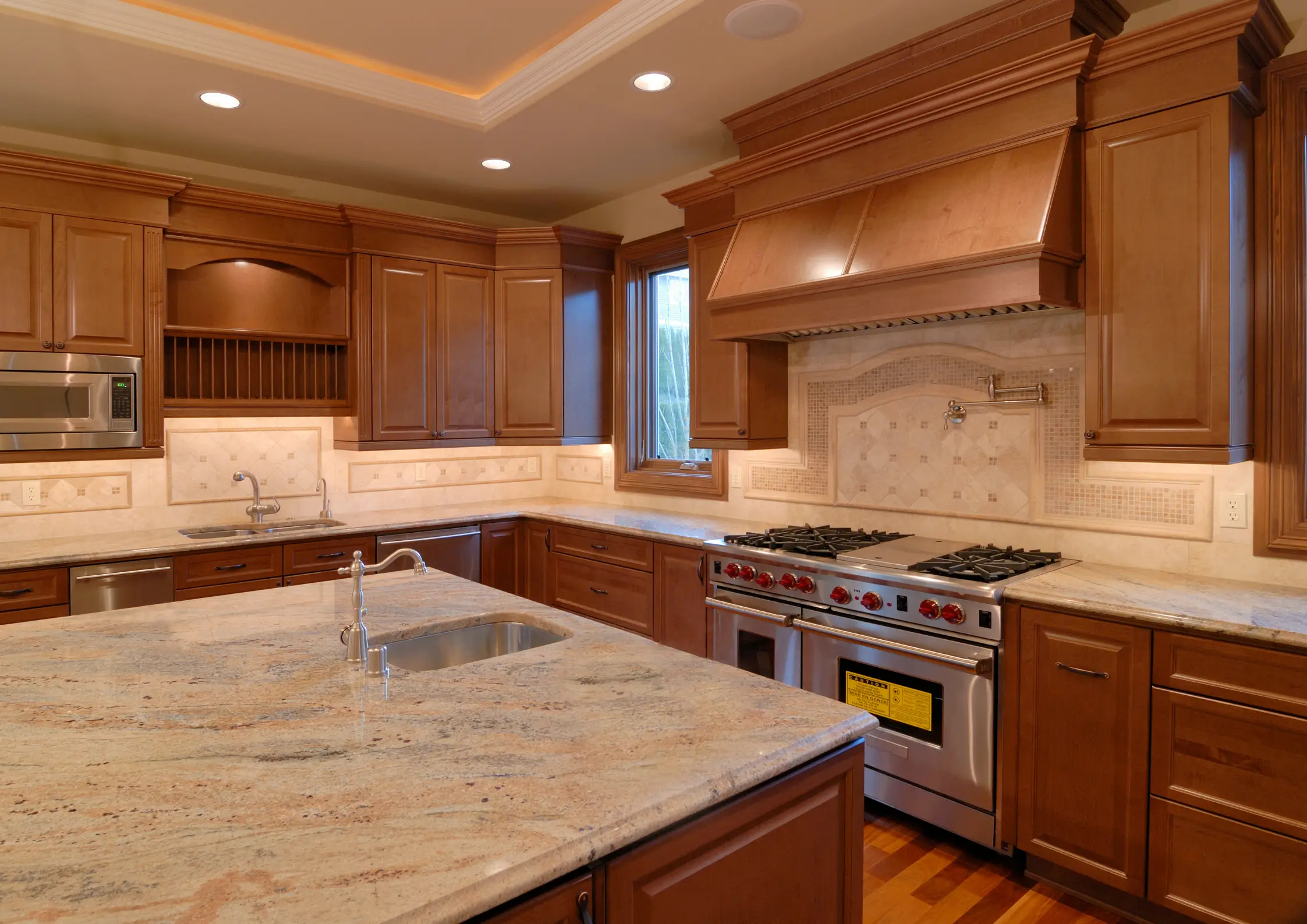 | Granite |
| 2 | 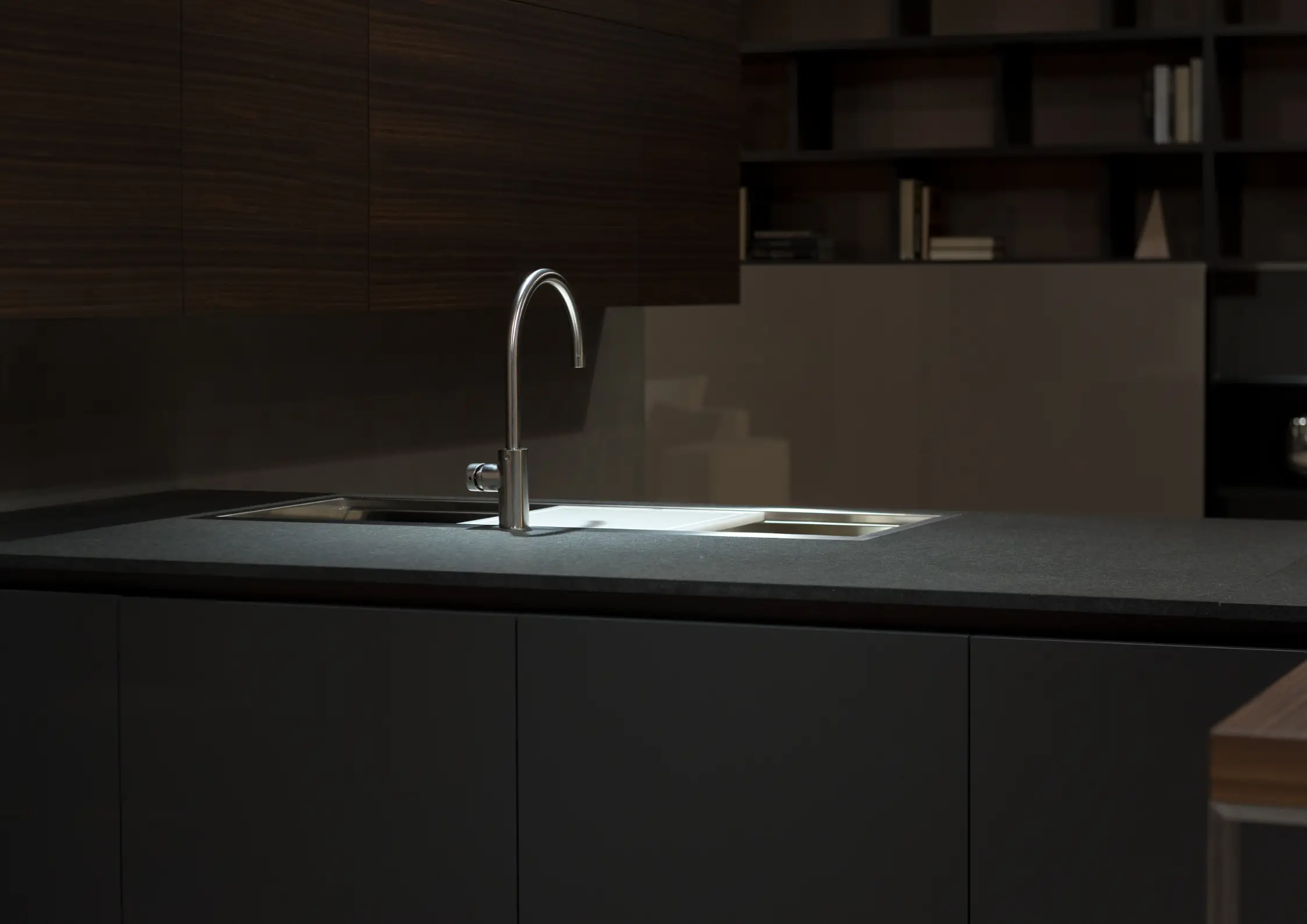 | Soapstone |
| 3 | 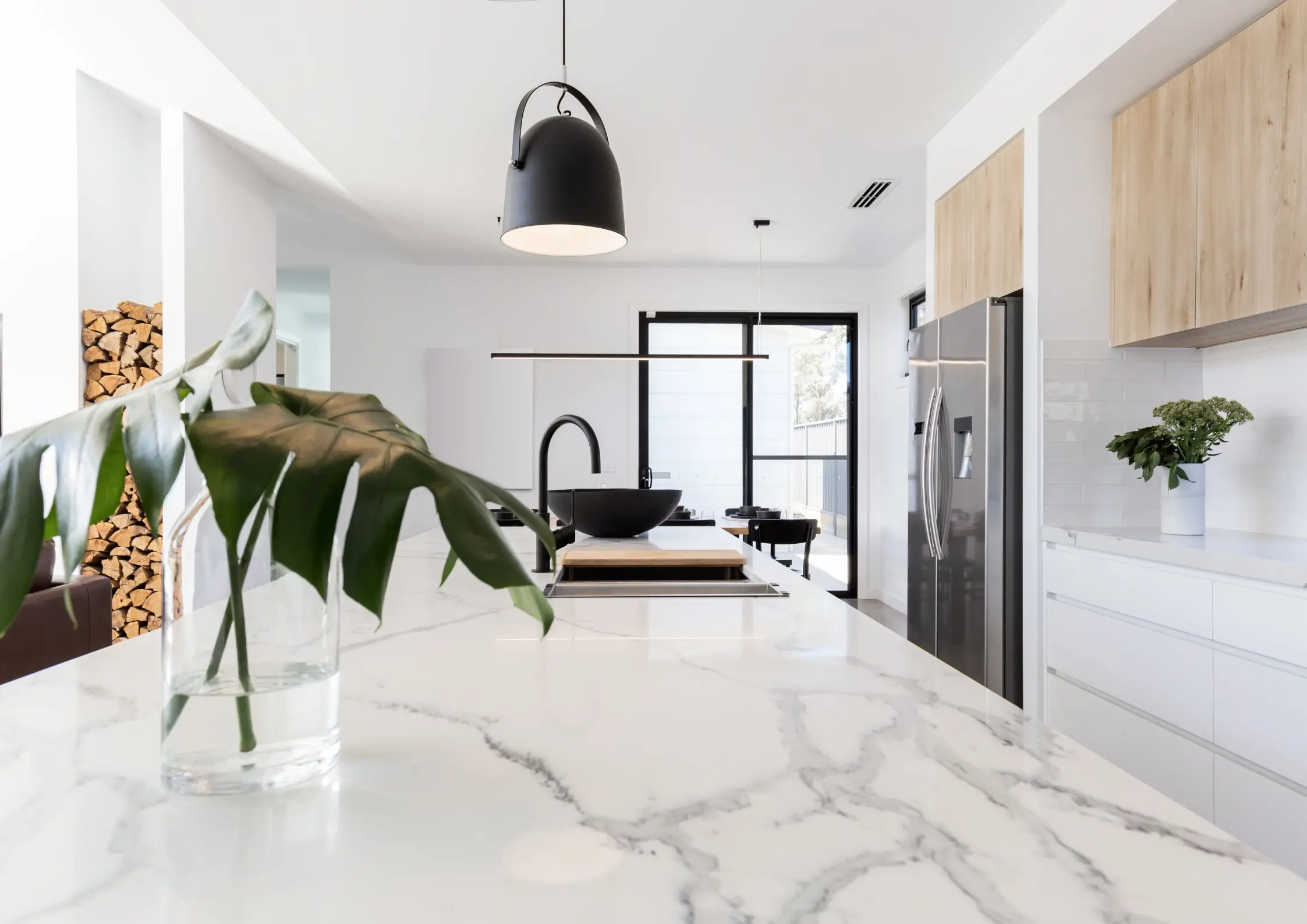 | Marble |
| 4 |  | Quartz (Engineered Stone) |
| 5 | 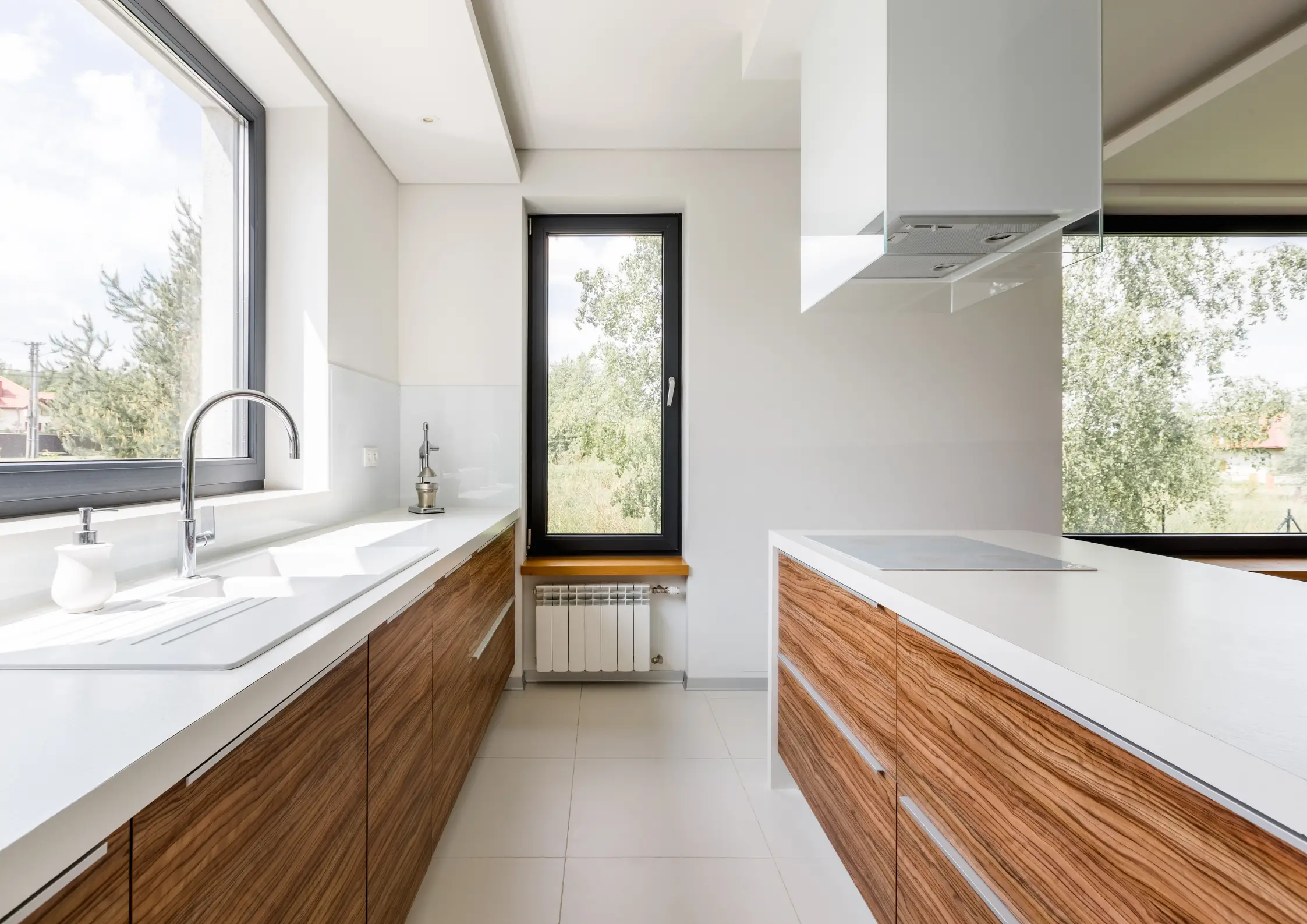 | Solid-Surface Material |
| 6 | 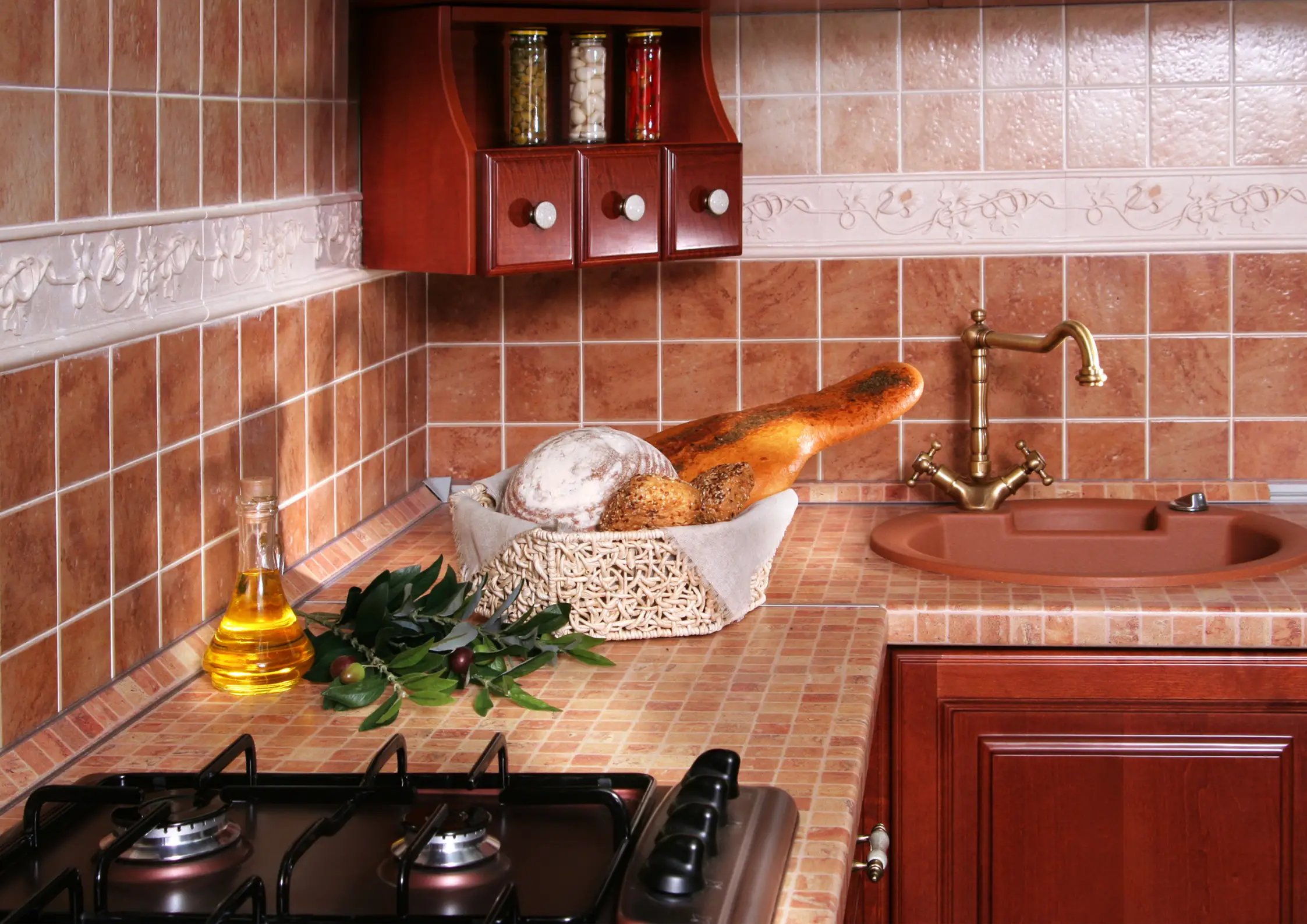 | Ceramic Tile |
| 7 | 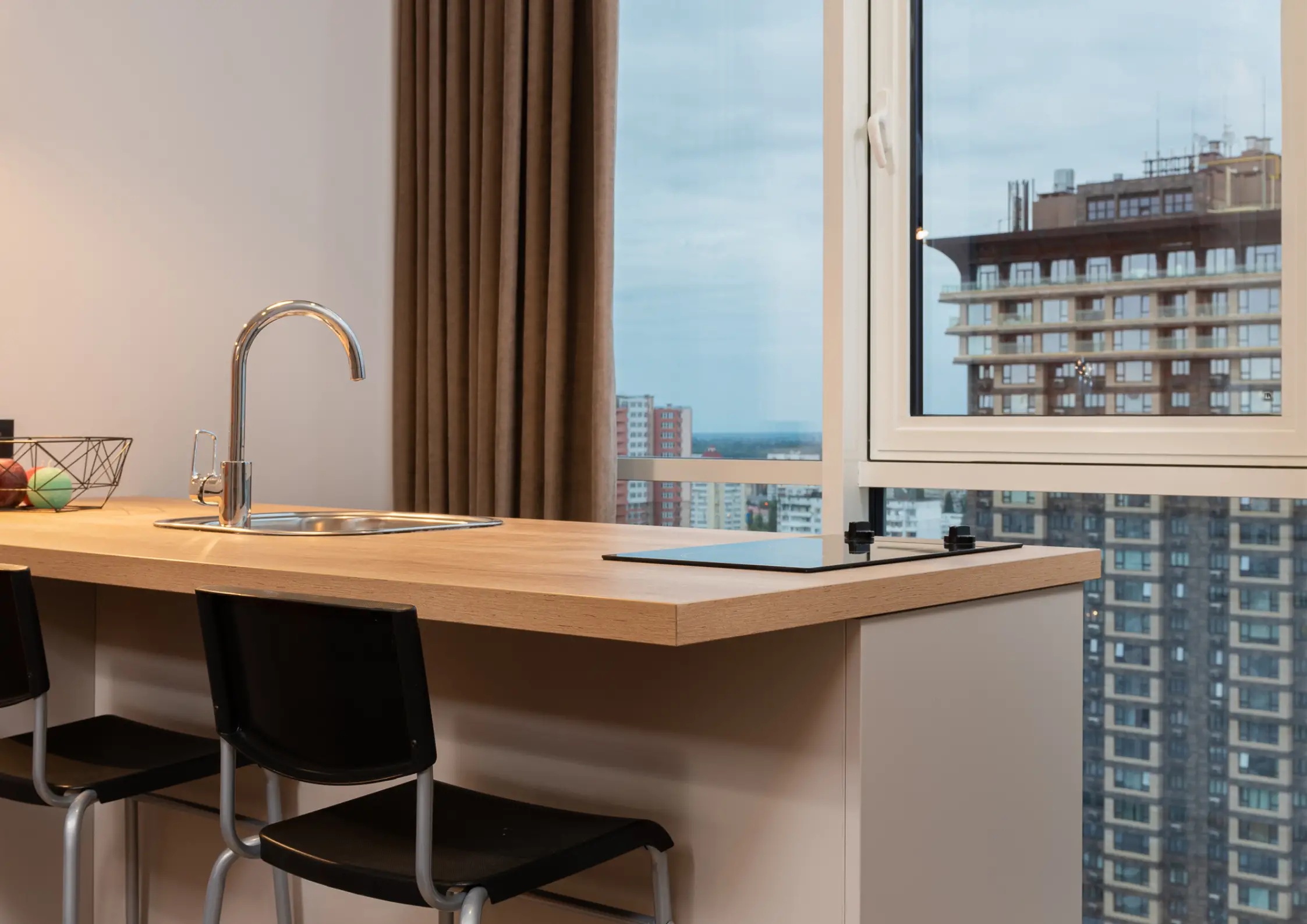 | Laminates |
| 8 | 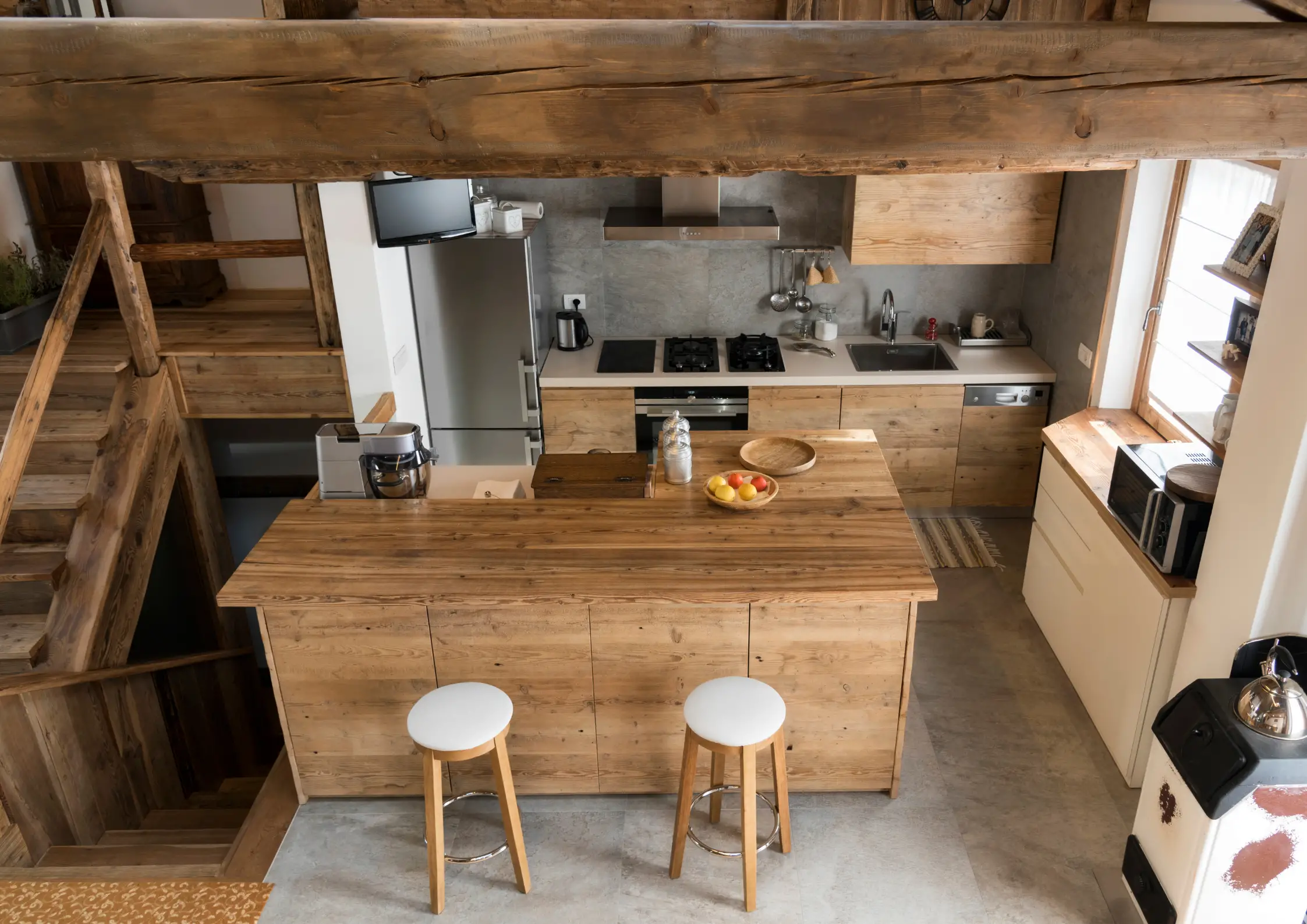 | Wood or Butcher Block |
| 9 | 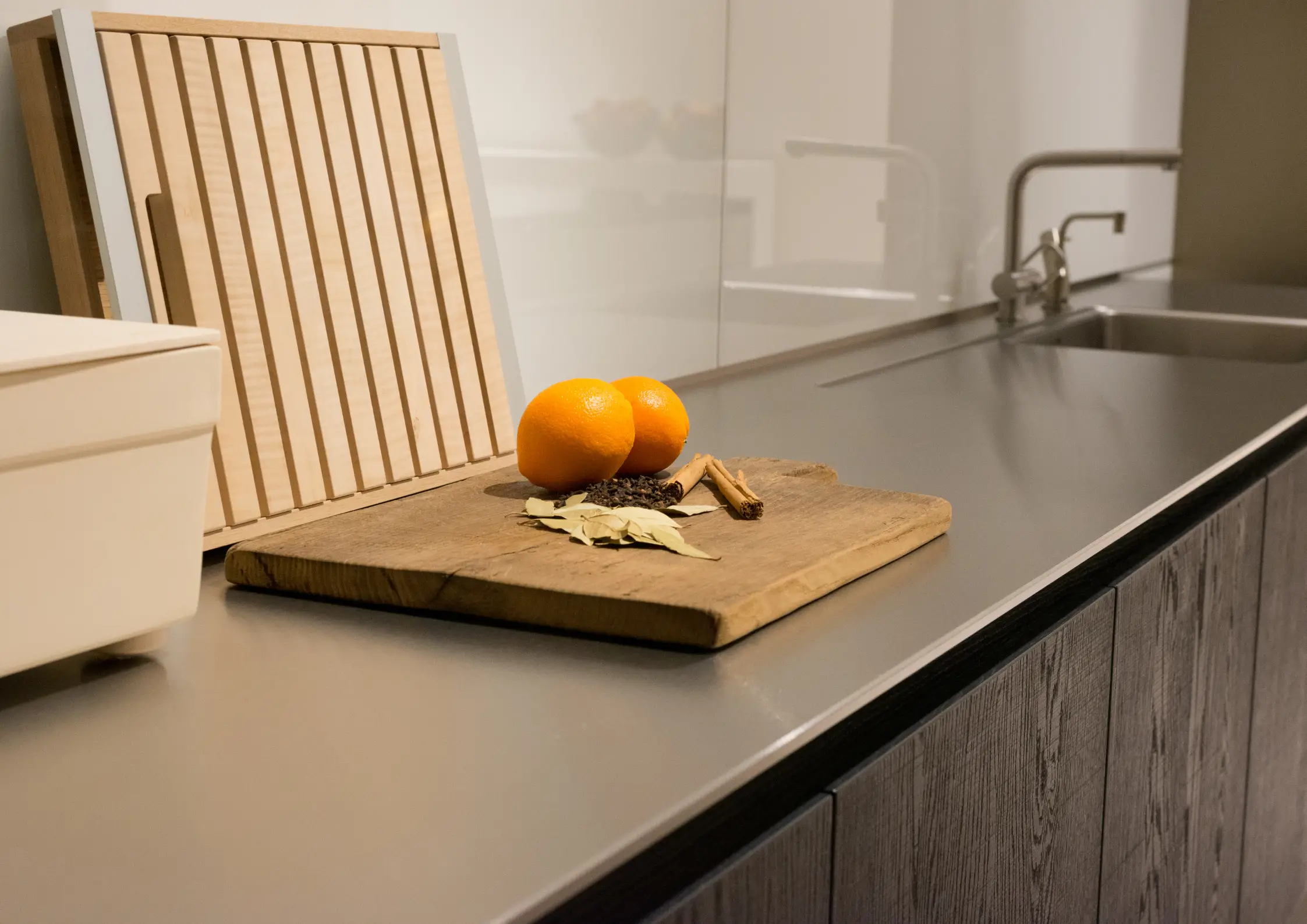 | Stainless Steel |
| 10 | 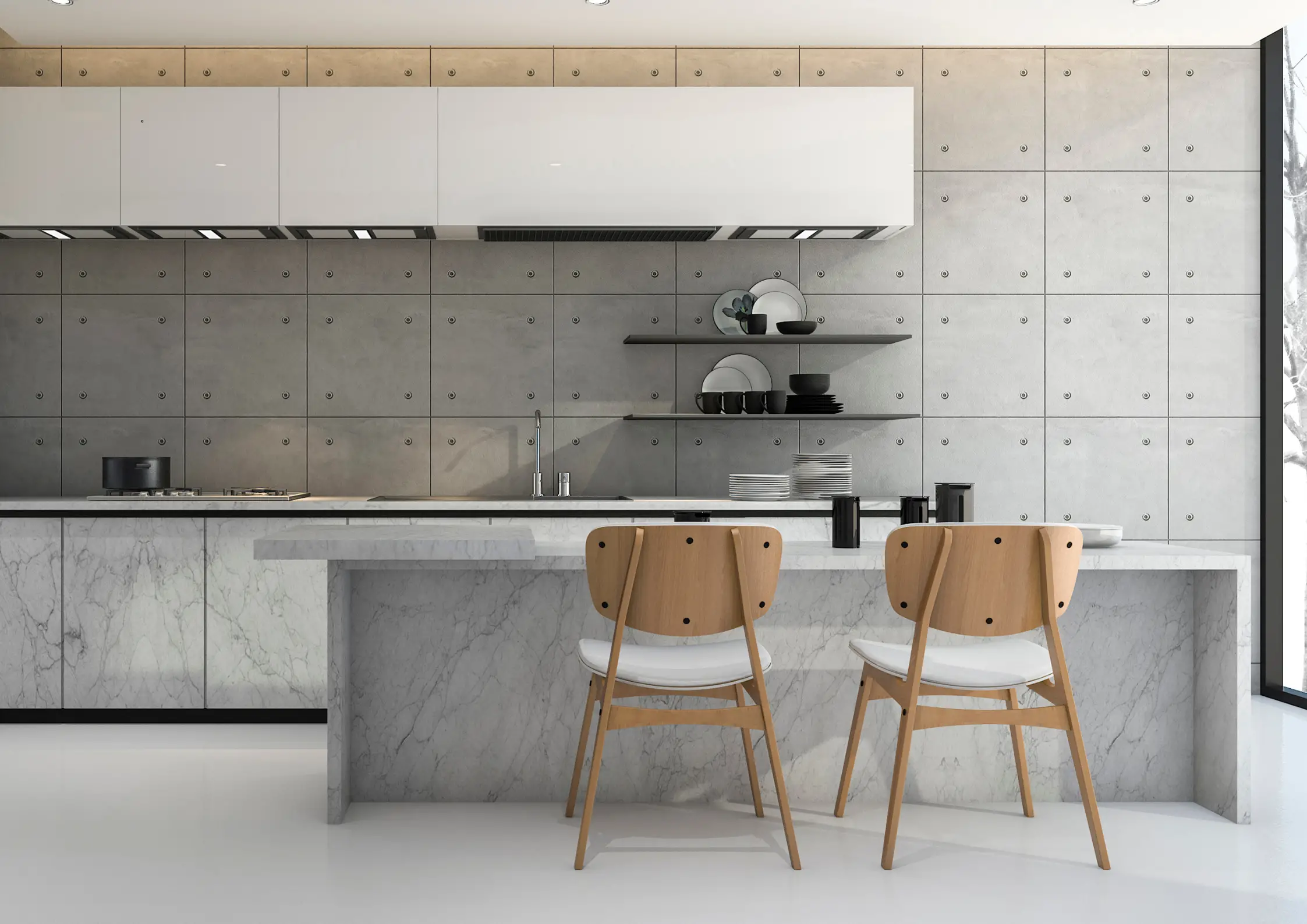 | Concrete |
Why should you invest in your countertop?
One of the highlights of your kitchen is your countertop. When it comes to picking the material for your countertop, it’s not just about the aesthetics. You want a countertop that is practical and meets your needs. Gives you space to chop, room by your kitchen sink to clean, and so on.
It’s an investment you’ll want to keep for a long time, and your sense of style and needs will influence the appropriate countertop for your house. Every countertop material has its own set of pros and cons.
We will narrow down what you need to know about the material you are eyeing for your countertop. And without further ado, let’s get started!
A Guide Before Material for Kitchen Countertop
It’s important to consider how you plan to use your kitchen when choosing which countertop material is suitable for you. All of these criteria are important to consider because they will affect the countertop’s durability and support.
Maintenance
Before you fall in love with a material’s beauty, make sure you understand the maintenance requirements. Here are some things to bear in mind:
- Oiling and sealing porous materials like marble, limestone, and granite once a year is required.
- Other materials, like as quartz, can be cleaned with a simple wipe.
- Butcher block is tough, but it needs to be sealed on a regular basis to minimize deterioration.
Budget
The price of materials varies greatly. A good kitchen countertop can last longer if properly maintained. Decide on your dream countertops first, and then look for a version that meets your budget.
However, depending on the variations between your ideal countertops and the less expensive alternative, it may be worthwhile to spend a bit more on something you’ll be using for years.
Seams
Especially when working with stone, you want your kitchen countertop to be smooth and seamless. Each piece of stone used in your countertop should be as large as possible to avoid needless seams and to assist cover any seams that may exist. After all, you don’t want your counters to look like a patchwork of stone.
Edges
The edges of your countertop are a little detail that may change the overall tone of your kitchen. Whether your kitchen is traditional, transitional, or modern, the stylish edge you choose can help to enhance the look and style you’ve chosen. Different decorative borders can also affect the level of safety in your kitchen, which is important if you have kids.
Thickness
Thicker countertops have recently been fashionable. Modern kitchens where their texture and style stand out. In natural stone, thicker slabs usually provide more color options. They’re also a more expensive option, helping to increase the value of your kitchen.
Countertop Materials Review
Here are the reviews of the best countertop materials
1. Granite
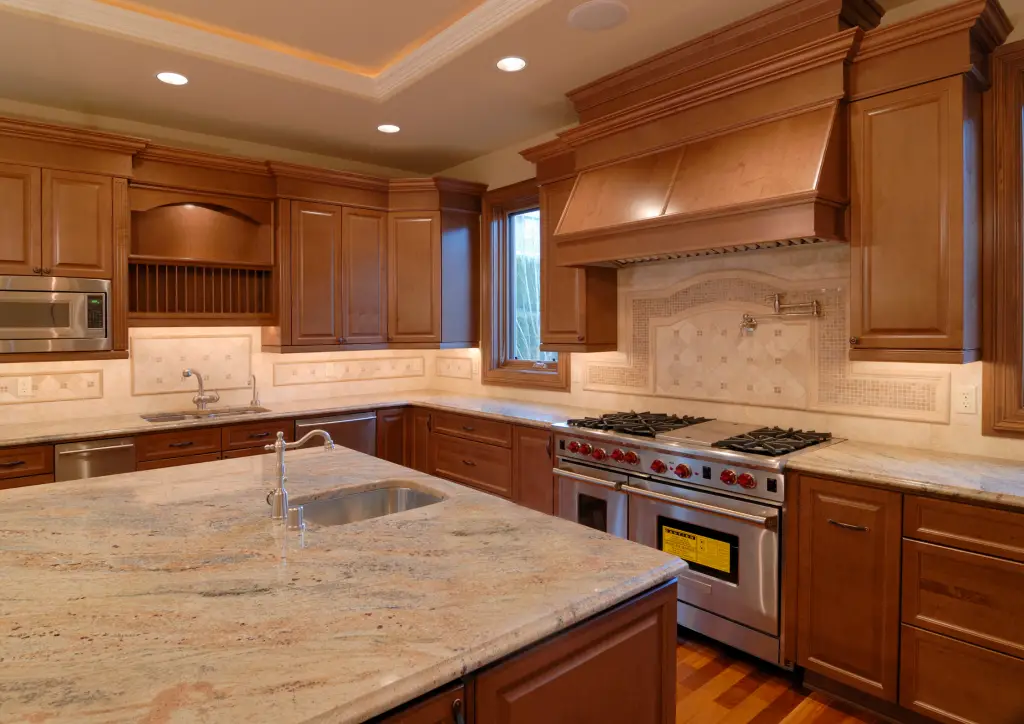
Granite has long been one of the most popular kitchen countertop materials. Granite may always go with an earthly design in your kitchen because it is a natural stone with earthly aesthetics.
If properly cared for, granite will last for over a decade. It has a high level of durability and strength, which is ideal for a busy kitchen. If properly sealed, it is also heat, stain, and scratch-resistant.
The Highlights:
Pros
+ High durability
+ Heat, scratch, and stain resistant
+ It is a natural stone and does not contain synthetic resin
Cons
– Prone to cracking
– The looks can be outdated
– It needs to be sealed because it is naturally porous and absorb liquids that can lead to
bacterial build-up
2. Soapstone
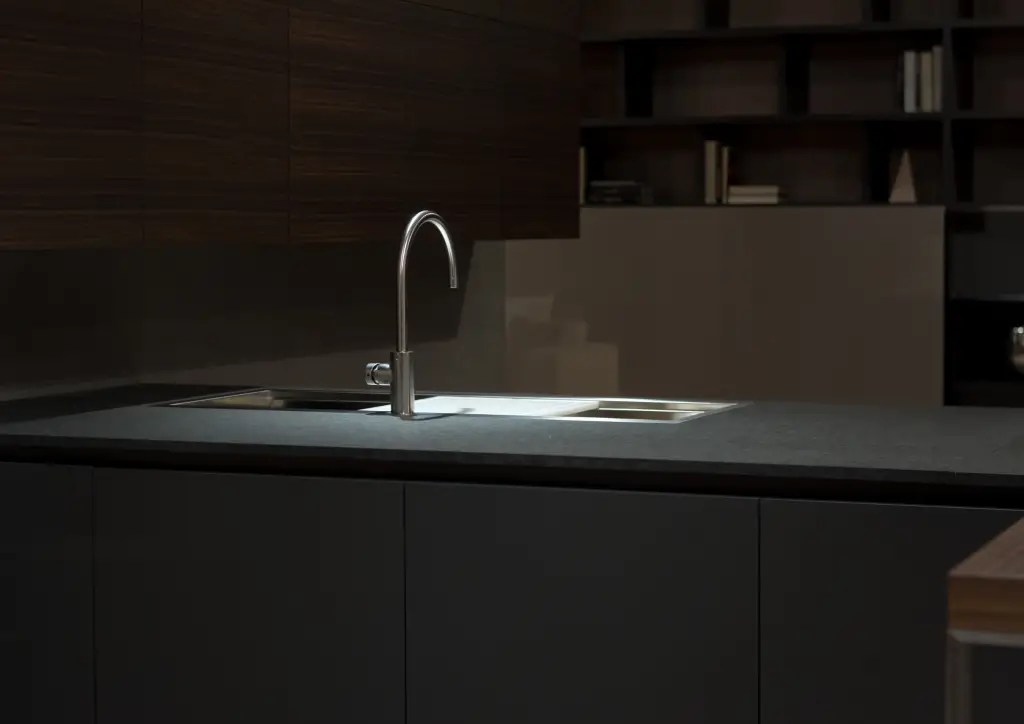
Soapstone is a natural stone that is usually dark gray in color and has a silky smooth finish. It’s also been used as a substitute for granite. Because it is not as hard as granite, it is more prone to scratches and damage. However, due to its softness, it can be carved in the style of your choice.
The elegance of soapstone will absolutely fit if you’re opting for a more country-style kitchen with less warmth. Its dark color tones give it a rustic, elegant, and urbane vibe. It requires mineral oiling to keep its best appearance and develops a natural patina over time.
Pros
+ Stain and heat resistant
+ It doesn’t need to be sealed
+ Environmental friendly, soapstone can be recycled.
Cons
– Limited range of color options
– Limited range of color options
– It is soft and can be scratch and damage easily
3. Marble
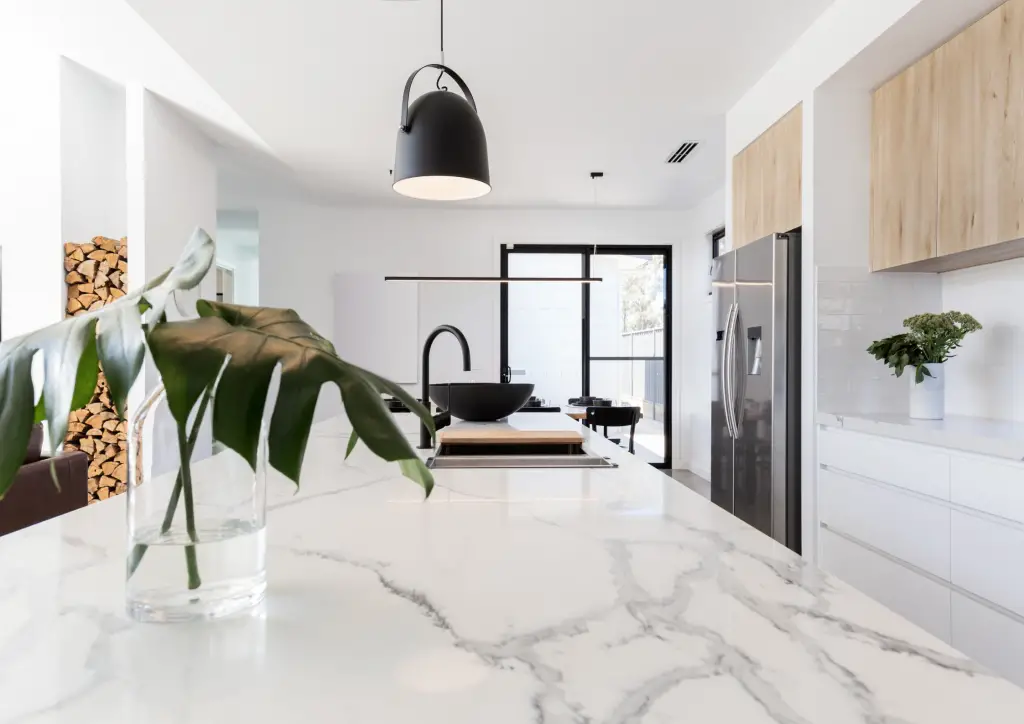
Marble is also a popular choice for countertops among homeowners. It is an undeniably stunning material that radiates elegance. The marble’s cool, smooth surface brings a touch of nature into your home.
Because of its natural cool temperature, working on a marble surface is ideal for baking. It will enhance the aesthetic of your home and provide you with a good return on investment. Marble is a durable material. It will last 20 to 30 years if it is properly polished and cared for.
Pros
+ Available in a wide variety of colors and designs
+ It can increase value over time which makes it a good investment
+ It has a naturally cool temperature and not a prominent conductor of heat
Cons
– It is porous and needs sealing to prevent stains
– Heavy and DIY installation is not possible
– It is very delicate that can be prone to scratches and stains
4. Quartz (Engineered Stone)
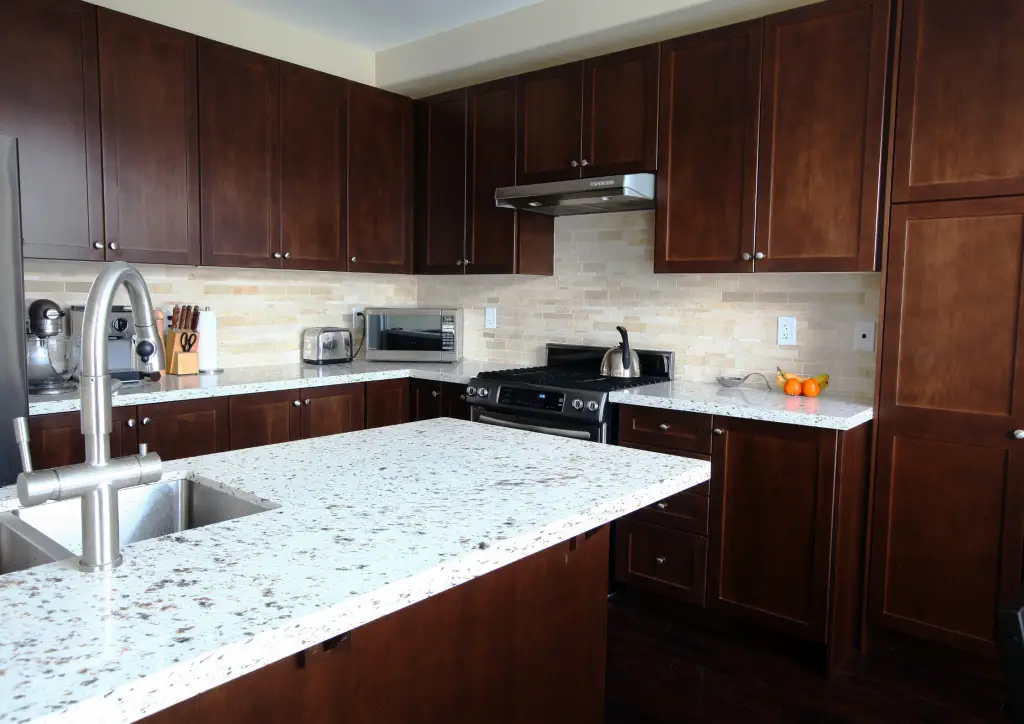
Quartz is becoming popular in the market because of its durability and low maintenance. Unlike other natural stones, quartz does not require oiling, sealing, or sanding provides convenience for homeowners. You’ll only need to wipe it down with mild soap and warm water.
It isn’t very clear if quartz is natural or manufactured. Quartz is a natural mineral that is used to make quartz countertops. And to make one, they grind quartz and combine it with natural and synthetic elements.
It will go with any of your kitchen decors because there are various designs to pick from. Engineered quartz look like natural stone thanks to advances in technology.
Pros
+ It offers a wide variety of designs
+ Low maintenance, no oiling, sealing, and sanding needed
+ Superior durability, it will not easily get scratch, crack, or chip
Cons
– It can discolor over time
– The resin and fillers are not susceptible to heat
– It might not look as natural as other natural stones
5. Solid-Surface Material
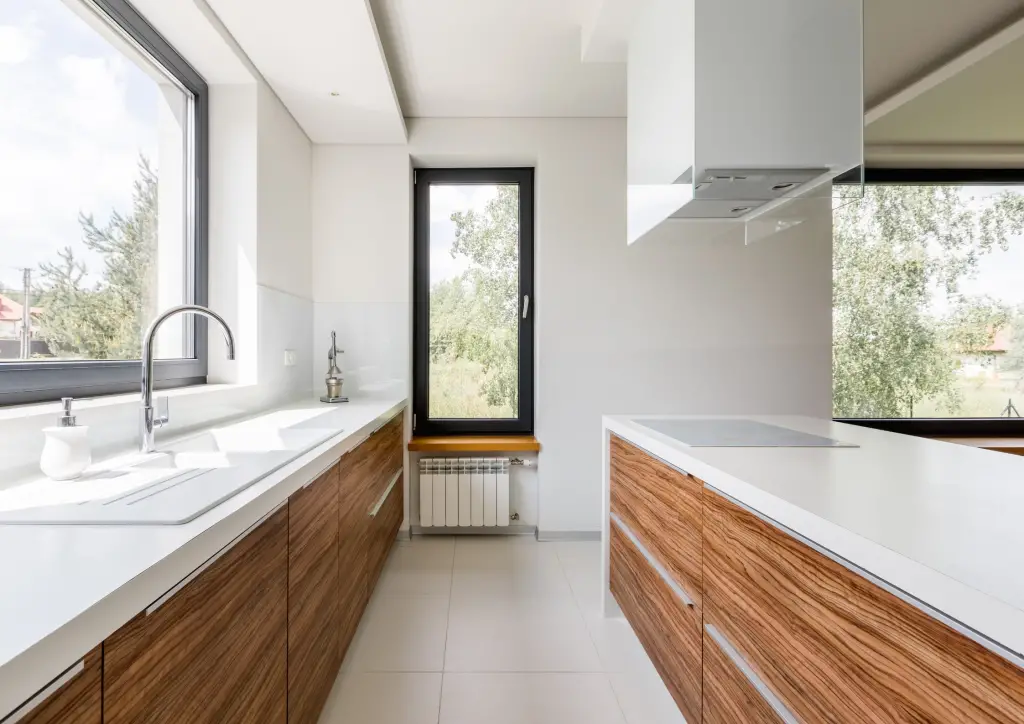
A solid surface is the best option if you want a completely seamless countertop. It is available in many styles that closely resemble the look of natural stone. This is also suitable for those with a tight budget who like basic colors and designs.
The word solid reinforces the sense that this is a stable base. A solid surface is a homogeneous material that extends from top to bottom. You also don’t have to be concerned about scratches on your countertop because the solid surface may be easily sanded.
Pros
+ It makes seamless joints
+ It is impact resistant and non-porous surface
+ If there is damage, it can easily be sanded out
Cons
– DIY installation is not possible
– It does not work well with strong chemicals
– Not susceptible to heat and can easily scratch
6. Ceramic Tile
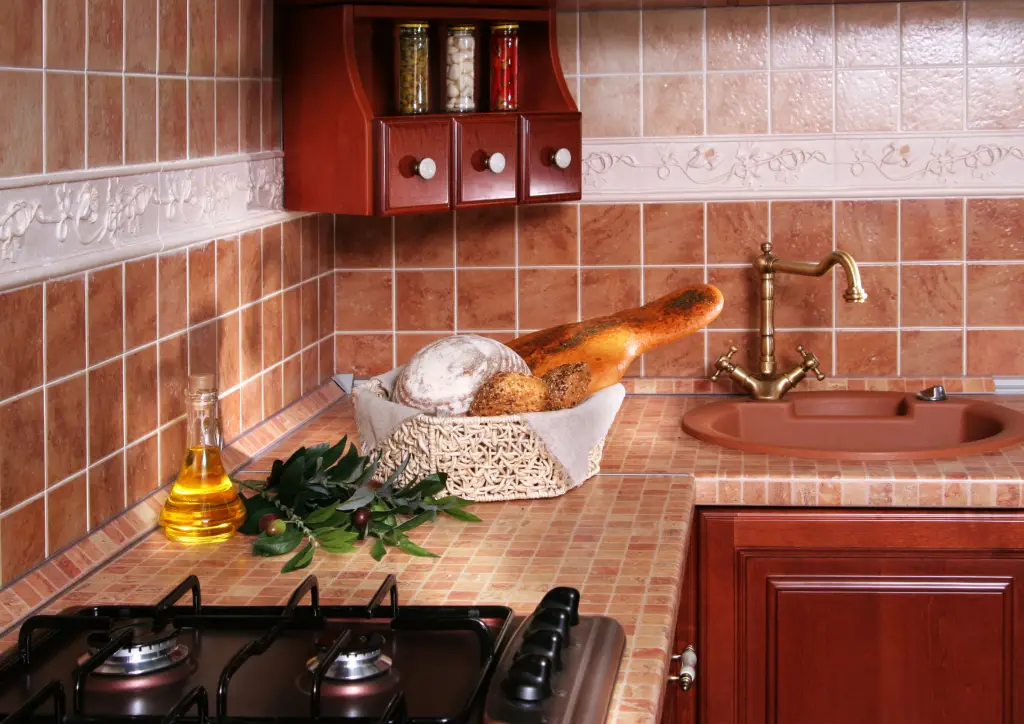
Ceramic tile is one of the most commonly used materials for kitchen countertops. It provides a wide range of options in terms of appearance and price.
You can easily make a custom design for your countertop. And, unlike other materials, there is no need for professional installation if you are a DIY enthusiast. However, every year the grout must be sealed. The grout can stain and is difficult to keep clean.
Pros
+ It is easy to clean, install, and replace
+ Affordable price compared to other materials
+ Huge variety of sizes, designs, and prices to choose
Cons
– Tiles are brittle and may crack easily
– Grout can be susceptible to bacterias
– Grout lines can stain and are difficult to clean
7. Laminates

If cost is a huge factor, a laminate countertop may be the ideal option for your kitchen. It comes in a variety of styles and is simple to set up.
The laminate sheets are bonded to a particleboard core to create the countertop. Laminate countertops are available in preformed segments or can be custom-built to your specifications. Some homeowners claim that laminates are not as durable as other materials. However, today’s laminates are far better than the old ones in terms of quality.
Pros
+ Cost-efficient to homeowners
+ Easy maintenance and many design options
+ Easy to install because of its lightweight nature
Cons
– Prone to damage and dullness
– It cannot be repaired or resealed
– It can be easily scratch and must not be exposed to direct heat
8. Wood or Butcher Block
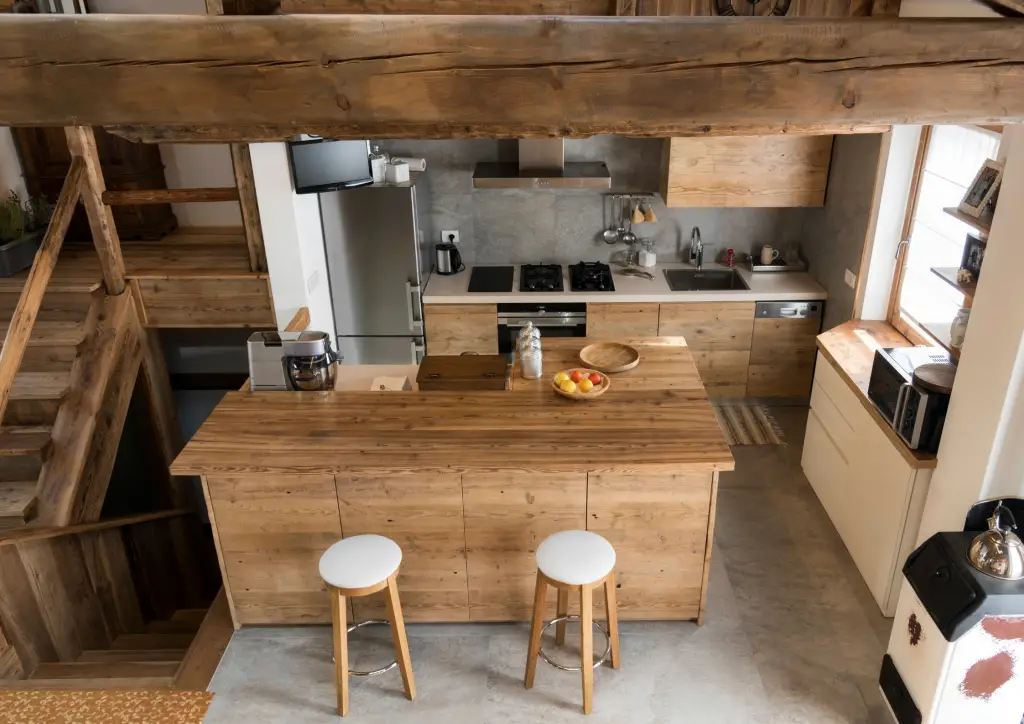
Wood countertops give your kitchen a rustic feel and bring life. It also comes in a variety of colors and finishes. The most common types of wood used as countertops are hardwoods like maple and oak.
Wood does require a lot of effort and care, but the beauty is well worth it. It manages to achieve a natural look while having a modern touch. Wood countertops are even more enticing because they are built from reclaimed wood. If you want to replace the material on your countertop, it can be recycled as well.
Pros
+ Eco-friendly countertop
+ Adds beauty and warmth to your kitchen
+ Superior durability, it will not easily get scratch, crack, or chip
Cons
– Needs a lot of care and maintenance
– It can be damage to overexposure to liquids
– Requires proper sealing to avoid bacteria build-up
9. Stainless Steel
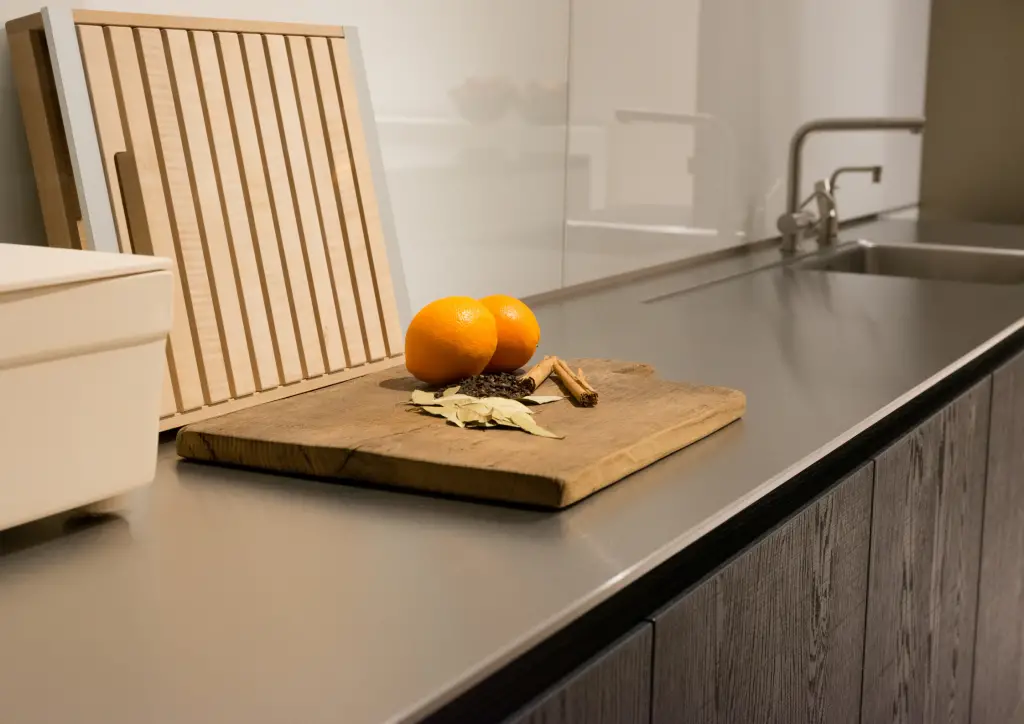
Both traditional and modern kitchens can go with stainless steel countertops. While some people are afraid that it may appear austere, various customization options can soften the design.
A stainless steel countertop also comes in a variety of finishes. Satin, mirror finish, brushed metal, and antique matte are all options. If you’re worried about fingerprints or smudges, a brushed finish is a way to go because it’s smooth and soft.
Stainless steel has a combination of chromium and nickel that makes it robust, rust-resistant, and stain-resistant. They’re also non-porous, so no liquids or solids can get through, and bacteria can’t grow on them.
Pros
+ It is heat, stain, and rust-resistant
+ Resistant to any chemicals and liquids
+ Easiest to clean and maintain among all the materials
Cons
– Not as attractive as other materials
– It can be scratch and have dents easily
– Stainless steel can be noisy when you are working with it
10. Concrete
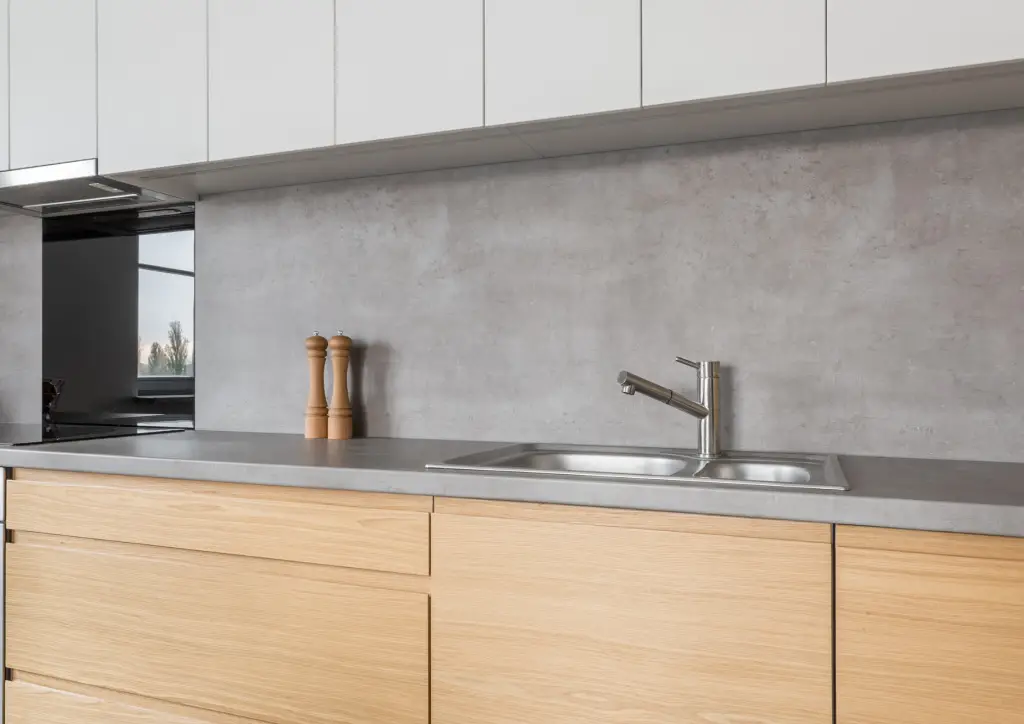
Do you want your kitchen countertop to stand out from the crowd? Then a concrete countertop could be a great alternative for you. You can use your imagination to create your own unique texture and color. They are frequently cast in shapes directly in your kitchen due to their heavy weight.
The cement and sand mixture’s strength makes it extremely long-lasting. Although it is susceptible to cracking, new treatments can help minimize this. Concrete’s porousness can be reduced with additives. Because concrete countertops are considered a premium material, they can increase the resale value in line with quartz and natural stone.
Pros
+ Durable material
+ Difficult to scratch and resistant to heat
+ It can be customized in terms of size, design, shape, and texture
Cons
– Prone to cracks
– It needs regular resealing to avoid stains
– It takes time to make a custom countertop
People Also Ask
Can You Put Hot Pans and Pots on Granite?
Yes, but perhaps you shouldn’t. Because granite can handle the heat, you can put a hot pan right on your countertop after taking it out of the oven. Granite is naturally resistant to heat, and it would only be damaged by heat if it exceeds the granite’s heat tolerance.
How long does it take to install countertops in a kitchen?
Installing kitchen countertops can take anywhere from 2 to 7 hours on average, depending on how big the kitchen is and how complicated the design is. It will take longer to put in countertops with more cutouts. This time frame doesn’t include the time it takes to make a template for the countertop, make it, or deliver it.
Does the kitchen countertop fade?
Natural stone will fade when exposed to the sunlight, but it will take a long time. Sunlight is a mixture of different kinds of radiation. A sunburn happens when you are exposed to ultraviolet radiation. It’s also the kind of radiation that will eventually change the color of your countertops.
Conclusion
One of the most visible aspects of your kitchen and one of the most used is the kitchen countertop. It can increase the value of your home if you invest in it. Your countertop can be made out of a variety of materials.
Natural stones such as marble, granite, and soapstones can give your home an earthy vibe. They never go out of style and are highly durable. It’s a wise investment because it will increase the value of your home.
On the other hand, Engineered stones are a less expensive method to give your home an earthy vibe like engineered quartz. They offer much wider color selections than natural stone. Engineered countertops are a long-lasting and customizable alternative to natural stone.
In contrast to natural stones, synthetic materials such as concrete, solid-surface, laminates, and others are non-porous. They also require less upkeep, though synthetic materials are not as hard as natural and engineered stone.
Also, if you’re looking to redesign your kitchen (or want more dream kitchen inspiration) check out our top 20 gourmet kitchen designs here.
Which of the materials on the list appeals to you the most? Let us know what you think in the comments section.


